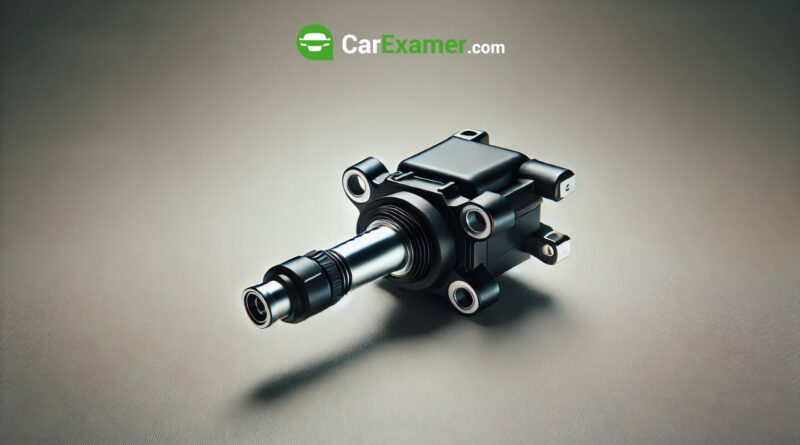What Is Ignition Coil and Why Does It Matter?
Estimated reading time: 5 minutes
Let’s break it down what exactly is ignition coil, how does it work, and why is it so important? The ignition coil might not be the first thing you think of when it comes to your car’s engine, but it plays a vital role in keeping your vehicle running. This small but powerful part is responsible for creating the spark needed to ignite the air-fuel mixture in your engine’s cylinders. Without it, your car wouldn’t start, and your engine wouldn’t run.
What Is an Ignition Coil?
An ignition coil is essentially a transformer. Its job is to take the low voltage from your car’s battery (around 12 volts) and convert it into the high voltage needed to create a spark in the spark plugs. This spark is what ignites the fuel in your engine, powering your car and keeping everything moving.
In simpler terms, the ignition coil is like a mini lightning generator for your engine, delivering the electrical jolt needed to get things going.
How Does an Ignition Coil Work?
Here’s a quick look at how an ignition coil operates:
- Battery Power:
The car’s battery sends low-voltage electricity to the ignition coil. - Voltage Boost:
Inside the coil, this electricity is transformed into a high voltage by winding wires and creating a magnetic field. - Spark Delivery:
The high voltage is then sent to the spark plugs, which fire up the air-fuel mixture in the engine’s cylinders, creating combustion and power.
It’s a simple process, but without it, your engine wouldn’t run.
Types of Ignition Coils
Ignition coils come in a few different types depending on the design of your car’s ignition system:
1. Coil Pack
- A bundle of ignition coils working together in one unit.
- Found in many modern vehicles.
2. Single Coil with Distributor
- One coil sends power to all the spark plugs via a distributor.
- Common in older cars.
3. Coil-on-Plug (COP)
- Each spark plug has its own dedicated ignition coil.
- This is the most efficient and precise system, used in many newer vehicles.
Why Is the Ignition Coil So Important?
The ign. coil is critical for your car’s engine. Here’s why:
1. Starts the Combustion Process
No spark means no combustion, and no combustion means your engine won’t run. The ign. coil ensures the spark plugs get the energy they need to fire.
2. Ensures Efficiency
A well-functioning coil keeps the engine running smoothly and efficiently, helping with fuel economy and overall performance.
3. Reduces Emissions
By making sure the air-fuel mixture is burned properly, the ignition coil helps reduce harmful emissions.
Signs Your Ignition Coil Might Be Failing
Like any car part, ignition coils can wear out over time. Here are some common signs that yours might need attention:
1. Engine Misfires
If your engine feels rough or jerky, especially during acceleration, it could be a sign of a faulty ignition coil.
2. Hard Starting
A failing coil might not generate enough voltage to start your car, making it hard to fire up the engine.
3. Poor Fuel Economy
If your engine isn’t firing properly, it may use more fuel than usual.
4. Check Engine Light
A faulty coil often triggers the Check Engine Light. A diagnostic scan can confirm if this is the issue.
5. Loss of Power
You might notice slower acceleration or a general lack of power when driving.
What to Do If Your Ign. Coil Fails
If you think your ign. coil is on its way out, here’s what you can do:
- Get a Diagnostic Scan:
A professional mechanic or an OBD2 scanner can help identify if the coil is the issue. - Inspect and Test the Coil:
A mechanic can test the coil with a multimeter to check if it’s still working properly. - Replace It:
If the coil is damaged or failing, replacing it is the best solution. In most cases, this is a straightforward repair.
Tips to Keep It Healthy
Want to avoid trouble? Here’s how to keep it in good shape:
- Replace Spark Plugs on Time: Worn spark plugs can put extra stress on the ignition coil, so keep them fresh.
- Avoid Moisture: Water damage can harm the ignition coil, so be careful when washing your engine or driving through deep puddles.
- Use Quality Fuel: Cheap or contaminated fuel can lead to deposits that affect the ignition system.
- Stick to Maintenance Schedules: Regular servicing keeps your ignition system and other components in top condition.
FAQs About
1. How Long Does an Ignition Coil Last?
Coils can last anywhere from 100,000 to 150,000 miles, but this depends on your driving habits and maintenance.
2. Can I Drive with a Bad Ignition Coil?
While your car might still run, it’s not a good idea. Driving with a faulty coil can damage other parts of the engine, like the catalytic converter.
3. Is Replacing Coil Expensive?
The cost of replacing an coil varies, but it’s generally affordable compared to more extensive engine repairs.
Final Thoughts
If you notice signs of trouble like misfires or difficulty starting, don’t ignore them. Addressing coil problems early can save you from bigger headaches down the road. With a little care and maintenance, this small but mighty part will keep your engine firing on all cylinders for years to come.

